Micronutrients: Vitamins and Minerals
Micronutrients: Vitamins and Minerals
Fitness and muscle hypertrophy are essential goals achieved alongside proper nutrition. However, while macronutrients such as protein, carbohydrates, and fats are often emphasized, the significance of micronutrients—vitamins and minerals—can sometimes be overlooked. This article examines the importance of micronutrients in nutrition for fitness and muscle hypertrophy, based on medical studies.
The Role of Vitamins
1. Vitamin D
Vitamin D is vital for muscle function and health. Research shows that adequate levels of vitamin D can enhance muscle strength and prevent muscle loss. Additionally, vitamin D deficiency has been linked to muscle weakness and reduced performance.
2. Vitamin C and E
Vitamins C and E, with their antioxidant properties, can help neutralize free radicals generated during exercise. This reduces muscle damage and accelerates recovery.
3. Vitamin B Complex
B vitamins, particularly B6, B12, and folic acid, are crucial for protein metabolism and energy production. Adequate intake of these vitamins supports muscle repair and growth.
+ Omega-3
Although not a vitamin, omega-3 is an essential fatty acid required for proper body functioning but cannot be produced internally. Omega-3 deficiency is a primary cause of skin stretch marks, especially in those genetically predisposed or during growth periods when the need increases. Modern diets often lack sufficient omega-3, making supplementation necessary. The daily requirement is approximately 1 gram, with an EPA/DHA ratio of 3:2.
The Role of Minerals
1. Calcium
Calcium is essential for muscle contractions and overall muscle function. Sufficient calcium intake can enhance muscle strength and reduce the risk of cramps.
2. Magnesium
Magnesium is required for energy metabolism and muscle function. Exercise can lead to magnesium loss, making adequate intake essential.
3. Potassium
Potassium is crucial for muscle contractions and maintaining fluid balance. Potassium loss through sweat during exercise makes consuming potassium-rich foods important.
4. Zinc
Zinc aids in the repair of skin damage.
Nutrition Recommendations
1. Consume a Variety of Foods: Increase the variety of vitamins and minerals by consuming diverse fruits, vegetables, whole grains, protein sources, and healthy fats.
2. Choose Fresh and Organic Foods: Fresh and organic foods generally have higher vitamin and mineral content and pose fewer health risks.
3. Use Supplements: When necessary, consider vitamin and mineral supplements. However, it is important to consult a healthcare professional before using any supplements.
Conclusion
Micronutrients play a significant role in fitness and muscle hypertrophy. Adequate intake of vitamins and minerals supports muscle function, enhances performance, and accelerates recovery. Therefore, it is crucial to pay attention to micronutrients while creating a balanced nutrition program.
The information in this article is based on medical research and derived from reliable sources.
References:
1. Ross, A. C., Taylor, C. L., Yaktine, A. L., & Del Valle, H. B. (Eds.). (2011). Dietary reference intakes for calcium and vitamin D. National Academies Press.
2. Carr, A. C., & Maggini, S. (2017). Vitamin C and immune function. Nutrients, 9(11), 1211.
3. De Oliveira, E. P., Burini, R. C., & Jeukendrup, A. (2014). Gastrointestinal complaints during exercise: prevalence, etiology, and nutritional recommendations. Sports Medicine, 44(1), 79-85.



